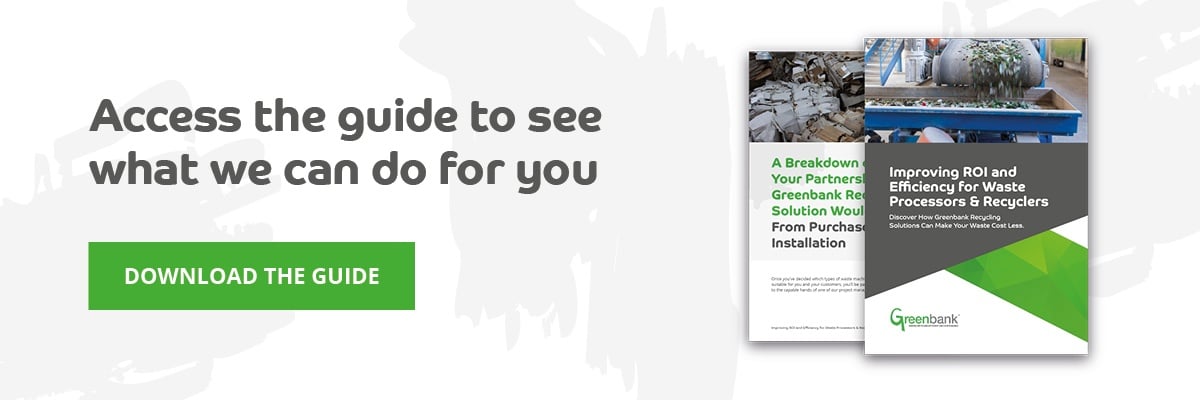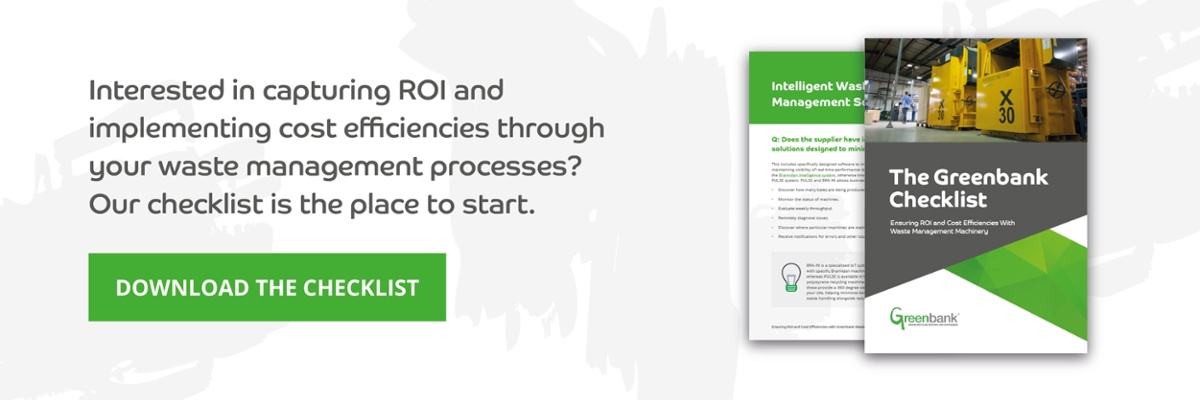Sustainable waste management involves using material resources efficiently to reduce waste production. To achieve this, organisations need to embrace innovative concepts to deal with waste in a way that actively contributes to the economic, social and environmental goals of sustainable development.
However, research has found that the world generates 2.01 billion tonnes of municipal solid waste annually, with at least 33% of that not being managed in an environmentally safe manner.
This highlights the need for change and for this change to happen, there are sustainable waste management best practices that waste handlers should follow. We’ve highlighted what these include in this blog.
- Set Out Sustainable Waste Management Goals
- Devise a Sustainable Waste Strategy
- Work With a Trusted Recycling Partner
- Track Your Waste Using Smart Technology
Set Out Sustainable Waste Management Goals
Sustainable waste goals are essential because they set out a vision. They enable your team to work collaboratively and provide a positive framework so you can implement beneficial change.
Goal setting is also the bedrock of any successful strategy. Goals provide direction when introducing new initiatives and measuring how successful they are. But what steps should you take when setting sustainable waste management goals?
Undertake an audit of your site. Without analysing and understanding your site as it is currently, you won’t be able to create the relevant goals needed to solve any issues you’re experiencing.
Review your waste policies and levels of waste production. What types of machinery are you using to manage your waste? Once you’ve completed your audit, the next action involves setting SMART goals.
These goals are specific, measurable, attainable, realistic and timely. Learn more about SMART goals and sustainable waste management tips here.
Devise a Sustainable Waste Strategy
So you’ve set out some sustainable waste management goals — now you need to put a strategy in place to achieve them. What did your site audit tell you? For example, it might become apparent that an equipment replacement or upgrade is needed.
There’s a range of modern solutions that can contribute to sustainable waste management. Balers are an effective way to reduce transport and collections, both contributing to environmental damage due to carbon emissions.
Compactors offer sustainable advantages too. These solutions also make waste collections easier as they aim to take up less room by compressing waste into smaller pieces.
If you’re unsure which type of solution is best for you and your needs, our Baler vs Compactor guide can help you learn more about each piece of waste management machinery.
Work With a Trusted Recycling Partner
To ensure your organisation regularly recycles its waste to meet DEFRA targets, you may want to consider working with a recycling partner. A waste partner will have all the relevant knowledge of current waste management legislation to ensure you remain compliant.
They’ll also have experience in supporting more sustainable ways of working. They can provide a tailored range of products to help you meet your sustainable waste management goals.
A trusted partner can also offer direction when devising your sustainable waste strategy. This includes running training sessions with your staff, showing you how to simplify procedures, planning maintenance schedules for your equipment and optimising your collection times to improve efficiency.
You can find out more about who we are, our approach and why we’ve become one of the UK’s most established waste recycling partners by downloading a copy of our guide.

Track Your Waste Using Smart Technology
Organisations and waste recyclers are increasingly embracing the power of smart waste management tools to become more sustainable in their approach. But what is smart waste management and how does it work?
Of course, you may well have waste machinery currently included in your operation. However, you might find it tricky to measure how these machines perform and how much waste they deal with each month.
By integrating smart waste management solutions, you can solve these problems. These solutions provide you and your team with a 360-view of your equipment so you can begin making the most out of them to achieve your sustainable waste management goals.
These solutions offer many other benefits. Yes, they’re great for aiding decision-making, but they can also support you when predicting trends, identifying potential risks in your operation and generally improving efficiency across your organisation.
Becoming a more sustainable organisation involves change. For many, change can seem daunting. Time and resources need to be spent realigning your strategy and your workforce needs to be engaged with your vision. That’s why we’ve put together a checklist that can support you on your journey.
Improve Efficiency and Build a Sustainable Waste Strategy With Our Checklist
Download our checklist to understand what to look for when choosing a waste supplier, receive guidance on becoming more sustainable and begin improving your waste processes.
Ready to get started? Access your copy of the checklist below.





